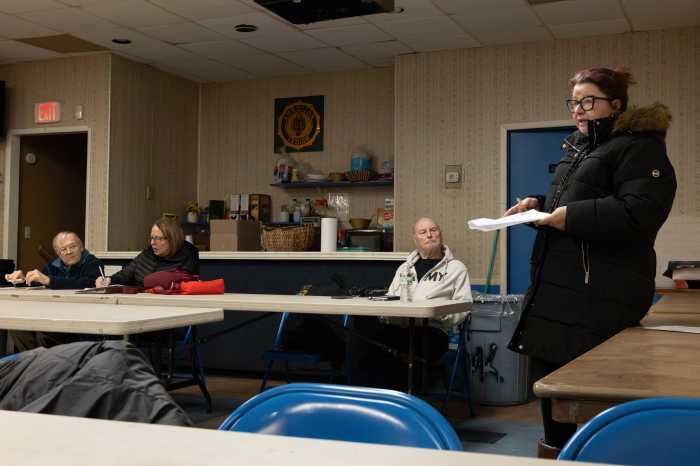A bill that Midwood/Boro Park Sen. Simcha Felder introduced that would expedite the land use process making housing units for elderly and disabled persons flew through the senate, 59-0, in the waning days of the legislative session in Albany.
Under existing provisions of the General Municipal Law, government-funded low income residential developments for seniors and the disabled are subject to expedited land use review under the Urban Development Action Area Project. The current law is set to expire on June 30 if it is not renewed. Felder’s measure extended the law until June 30, 2018.

“Making housing affordable for all New Yorkers has always been a goal of mine. I am pleased that this year we were able to pass this bill to continue to help provide low-income elderly and disabled individuals in New York with affordable housing,” said Felder.
Not for profit sponsors purchase city land and build housing with financial backing from the United States Department of Housing and Urban Development (HUD). Under the Supportive Housing for the Elderly Program, also known as Section 202, and the Supportive Housing for Persons with Disabilities, also known as Section 811, the buildings are rented out to low income elderly and disabled persons.
Elderly residents in Section 202 housing pay 30 percent of their income for rent. Federal subsidies take care of the difference based on the unit’s fair market price. To be eligible for residency in one of these units, applicants must have low or moderate income and have at least one person in their household over the age of 62. The wait times for these units can be quite long.
Under Section 811, HUD helps to develop rental housing for “very low- and extremely low-income” adults with disabilities. Projects are funded either by interest-free capital advances or by providing rental assistance to state housing agencies. For projects funded by capital advances residents must be considered very low-income, meaning that the household is within 50 percent of the median income for the area. At least one adult member of the household must have a disability, including physical or developmental disability or chronic mental illness.
Since 2002, HUD has financed over 2,800 units of Section 202 and Section 811 housing in New York City. Of these units, 95 percent are rented out by low income elderly persons. Many of these units are located in Brooklyn, as well as the Bronx, where the need for such housing is the greatest.
The sale of city land is subject to a long review procedure, known as the Uniform Land Use Review Procedure (ULURP). Despite the high need for housing, this review process can take nearly a year to complete. However, when the expedited land use review is utilized, the process is cut nearly in half to around five months.
Lengthy review procedures not only affect housing availability but can also be costly to the city. The longer the process takes, the more money it costs. As costs rise, the City has to secure additional funding. If the City can’t find the money, the process takes even longer and the costs continue to rise.
Under Felcher’s bill, only six developments with no more than 90 units will be eligible for expedited land use review.






